Who Is Capable Of Replacing Boris Johnson
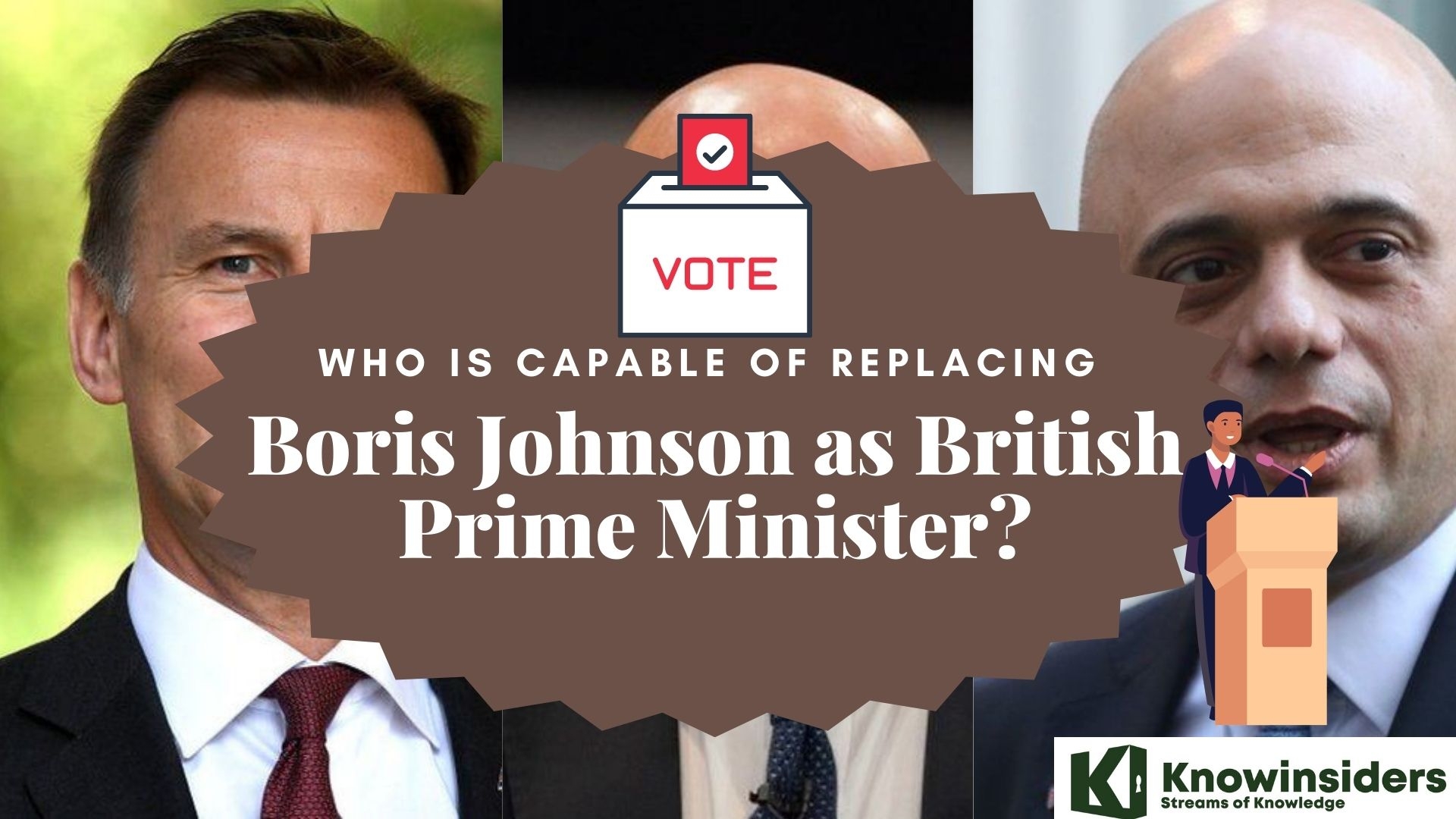 |
| Who Is Capable Of Replacing Boris Johnson as British Prime Minister? |
| Table of Content |
As crisis after crisis has engulfed Boris Johnson in recent months, so rivals of Britain's beleaguered prime minister have been plotting behind closed doors to replace him.
In the wake of the so-called partygate scandal over illegal gatherings held at Downing Street in defiance of coronavirus lockdowns, several senior members of Johnson's cabinet began quietly preparing for a future leadership contest, courting influential members of parliament and dining with donors who could fund their campaigns.
Johnson survived a vote of confidence on June 6, but more than 40% of Conservative lawmakers declared that they had lost confidence in his ability to govern. And, in the intervening month, those who most wanted to see his downfall have been jockeying for his job, according to CNN.
On Tuesday, two high profile lawmakers long expected to throw their hats into the ring -- Health Secretary Sajid Javid and Chancellor of the Exchequer Rishi Sunak -- resigned over the botched handling of the resignation of Johnson's former deputy chief whip in a sexual misconduct scandal.
A dramatic cascade of nearly 60 resignations by lawmakers and government officials followed, ultimately forcing Johnson to begrudgingly announce on Thursday that he would step down.
Now, with the government in tatters, bookmakers and much of Britain are speculating about his likely successor. Any candidates who run for the leadership will go through rounds of voting by Conservative lawmakers until only two remain -- at which point Conservative Party members nationwide will vote. The winner will be the new party leader -- and prime minister.
Boris Johnson resigns as UK Prime Minister – What happens next?
After almost three years in charge Boris Johnson has resigned as Conservative Party leader and Prime Minister (PM). The decision comes in a week characterised by the departure of over 50 Ministers who lost confidence in Johnson’s ability to lead. A leadership contest will now follow, the new leader also becoming the next PM1. Johnson is expected to remain as PM in the meantime.
In recent months Johnson’s position as PM had weakened considerably following a police investigation into parties and reunions held at Downing Street during Covid lockdowns. A report from a senior civil servant detailing the nature of these gatherings and the breach of conduct that occurred at 10 Downing Street during the pandemic triggered an initial call for the PM to resign.
The shift in public’s support away from the Conservative Party and in favour of Labour has been reflected in the polls. Voting intentions for the Tories declined from 53% at the start of the pandemic, to 46% in June 2021 and 33% in June 2022. At the same time, support for the Labour Party has grown by ten percentage points in the last year, see Chart 1. On 24 June the Conservative Party was defeated in two by-elections in the UK constituencies of Wakefield and Tiverton and Honiton which magnified the loss of support for the Tories in local communities.
What happens now
Johnson’s resignation triggers a Conservative Party leadership contest. Normally, the Prime Minister remains in place during such a contest until a new leader is elected, maintaining all his or her normal Prime Ministerial powers. Two recent examples include Johnson’s predecessor Theresa May in 2019 and David Cameron in 2016.
If Johnson decides to leave before a new leader is elected, he can recommend the Queen appoints someone else to take over as caretaker PM until a new leader is elected. In April 2020, Deputy PM Dominic Raab was asked to stand in for Johnson when the PM was admitted to hospital due to a Covid-19 infection, so it is possible that he would be proposed if Johnson were to go immediately
Regardless of who takes over, the likelihood of a new general election is low. The Conservative Party gained 44% of the popular vote at the last election, achieving a majority of 80 seats in the House of Commons. This is something the Party will not want to risk by calling a snap election after the next PM is elected. A recent poll of polls gathered by Politico shows Labour leading the Conservatives in voting intentions by 40% of the vote to 33%.
According to the latest betting odds, former Chancellor Rishi Sunak and Defence Secretary Ben Wallace have the highest chances of becoming the next Conservative Party leader with odds of 16% and 14% respectively. Trade Minister Penny Mordaunt and Foreign Secretary Liz Truss have odds of 12.5% and 8% respectively. Other names proposed have been Attorney General Suella Braverman, Sajid Javid and Jeremy Hunt.
Market implications
The rising cost of living in the UK has weighed on economic sentiment and encouraged the government to implement a series of measures to help offset increases in energy prices. The Government’s increase in the threshold at which people start paying National Insurance will represent a tax cut for 70% of UK workers which will save workers up to £330 a year, providing support for lower-income households.5 More general tax cuts, such as to VAT, would further help to ease pressure on consumers.
The British pound hit a two-year low against the US dollar on Wednesday 6 July, trading at 1.1875 following the wave of resignations and compounding what has already been a weak year for the currency. However, recent weakness of the pound can be attributed to broader economic concerns over a potential recession in the UK rather than to political events. The UK pound is now near lows not seen since the 1980s.
Interest rates in the UK will continue to rise, as strongly suggested by the latest statements from the Bank of England. The Monetary Policy Committee is expected to hike rates by 25bps at the next policy meeting on 4 August, but a faster hiking pace is possible if inflationary pressures remain strong.
Who are the Potential Contenders to be the New Prime Minister?
1. Penny Mordaunt
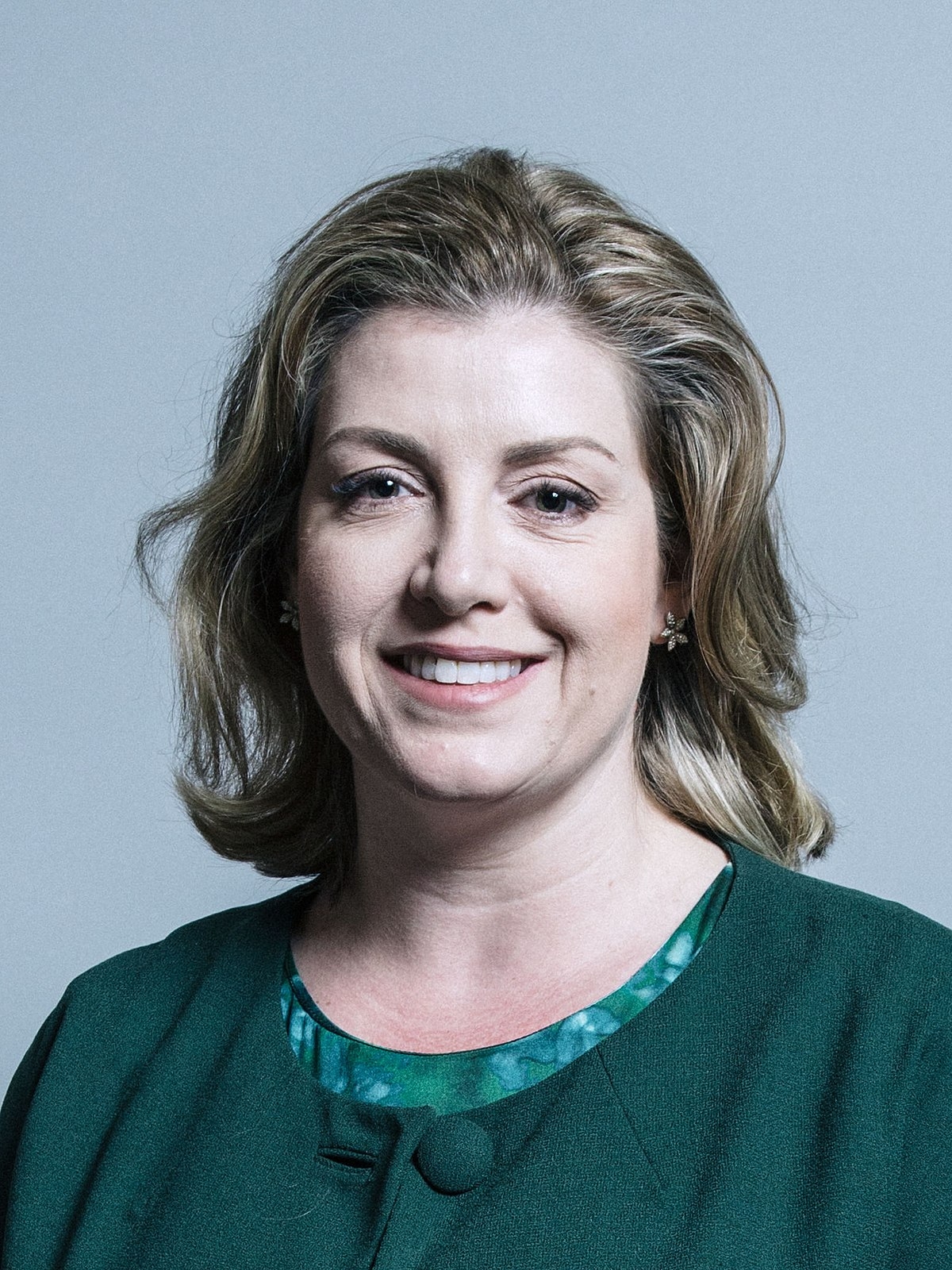 |
| Photo: Wikipedia |
Penelope Mary Mordaunt FRSA (born 4 March 1973), known as Penny Mordaunt, is a British politician who has served as Minister of State for Trade Policy since 2021. She has been Member of Parliament (MP) for Portsmouth North since 2010. A member of the Conservative Party, Mordaunt served in Theresa May's Cabinet as Secretary of State for International Development from 2017 to 2019 and Secretary of State for Defence in 2019.
Mordaunt served as Parliamentary Under-Secretary of State for Decentralisation from 2014 to 2015, prior to being appointed Minister of State for the Armed Forces in 2015, the first woman to hold the post. Following Theresa May's appointment as Prime Minister, Mordaunt was appointed Minister of State for Disabled People, Work and Health. In 2017, following the resignation of Priti Patel, Mordaunt was appointed Secretary of State for International Development. She also served as Minister for Women and Equalities from 2018 to 2019.
In May 2019, Mordaunt was appointed Secretary of State for Defence, replacing Gavin Williamson. She served as Defence Secretary for 85 days, and was the first woman to hold the post. In the 2020 cabinet reshuffle, Mordaunt re-entered government as Paymaster General. In the 2021 cabinet reshuffle she was appointed Minister of State for Trade Policy. She is currently the only female MP who is a Royal Naval Reservist.
According to the Manchester Evening News she is a candidate in the 2022 Conservative Party leadership election.
Penny Mordaunt, 49, is a junior trade minister who first became a member of Parliament in 2010. She has held a number of roles in government. In 2019, Mordaunt, a former Royal Navy reservist, became Britain’s first female defense secretary. Johnson sacked her from that position shortly after he became prime minister (she had backed Jeremy Hunt, Johnson’s rival, in the 2019 leadership contest). She reentered government a year later and was broadly seen to have been supportive of Johnson. An arch-Brexiteer, Mordaunt could appeal to the Brexit wing of the party. She is best known outside of politics for having appeared in a now-defunct reality show.
2. Rishi Sunak
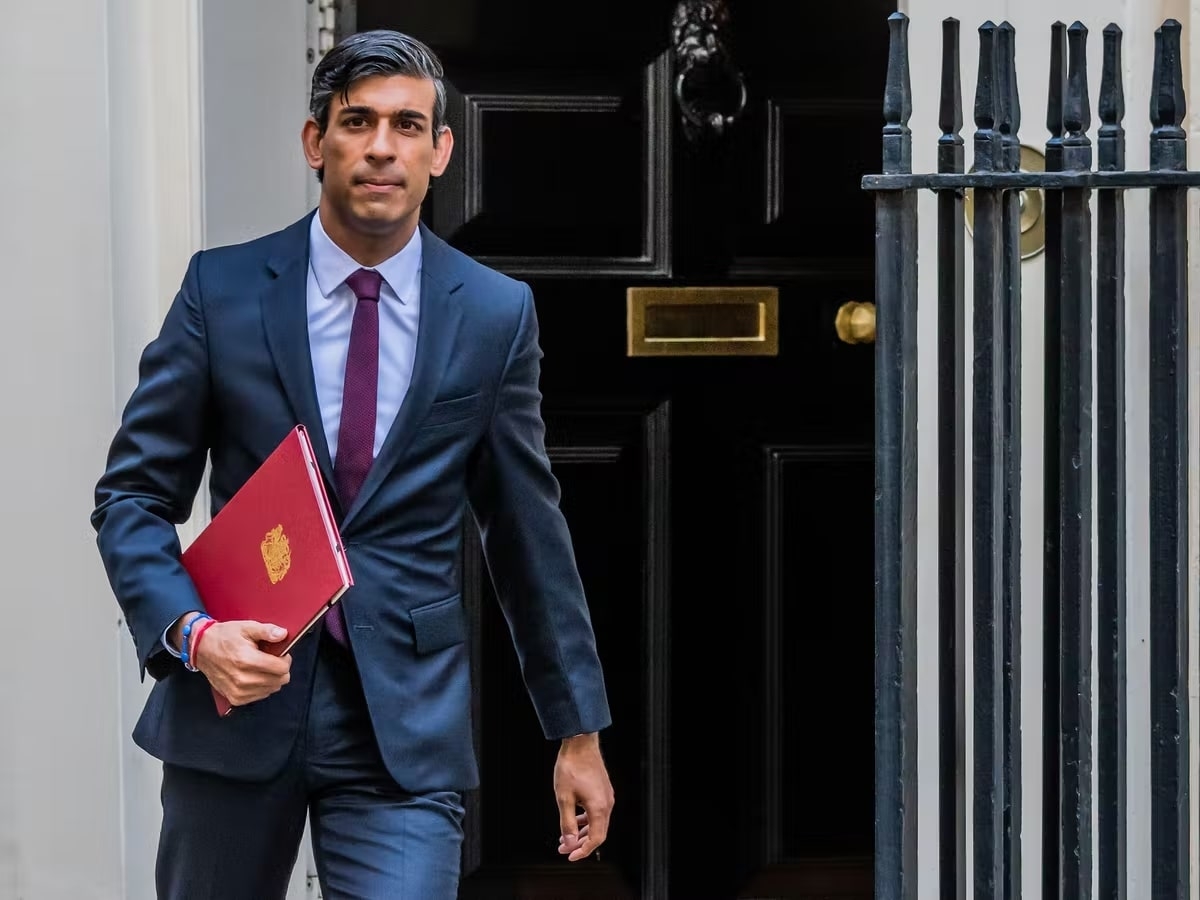 |
| Photo: The Conversation |
The former chancellor formally announced he was standing to succeed Johnson on Friday in a slick campaign video, which began with the story of his Indian parents, who both emigrated to the UK from East Africa. "It was Britain, our country, that gave them and millions like them the chance of a better future," he said. "I want to lead this country in the right direction."
Sunak was Johnson's presumed successor for several months after he won praise for overseeing Britain's initial financial response to the Covid-19 pandemic. But he has suffered several of his own scandals while in government.
His stock sank earlier this year after revelations that he broke Covid regulations to attend the prime minister's birthday party on June 19, 2020, which he later apologized for "unreservedly."
His financial and legal affairs came under scrutiny this spring following reports his wife had non-domicile status in the UK -- meaning she was not liable to pay tax on overseas income -- and that he held a US green card while serving as minister.
His popularity has also taken a beating in recent weeks as Britain has suffered the worst cost-of-living crisis in decades. Sunak has struggled to keep down spiraling inflation and has been criticized by opposition parties for what they call a slow and inadequate series of financial measures. Among the economic woes facing Britons after Sunak's time as the UK's chief financial minister: real wages dropping to their lowest levels in more than 21 years and inflation hitting a 40-year high of 9.1% in May.
But he is still among the bookmakers' odds-on favorites to take Johnson's job.
3. Ben Wallace
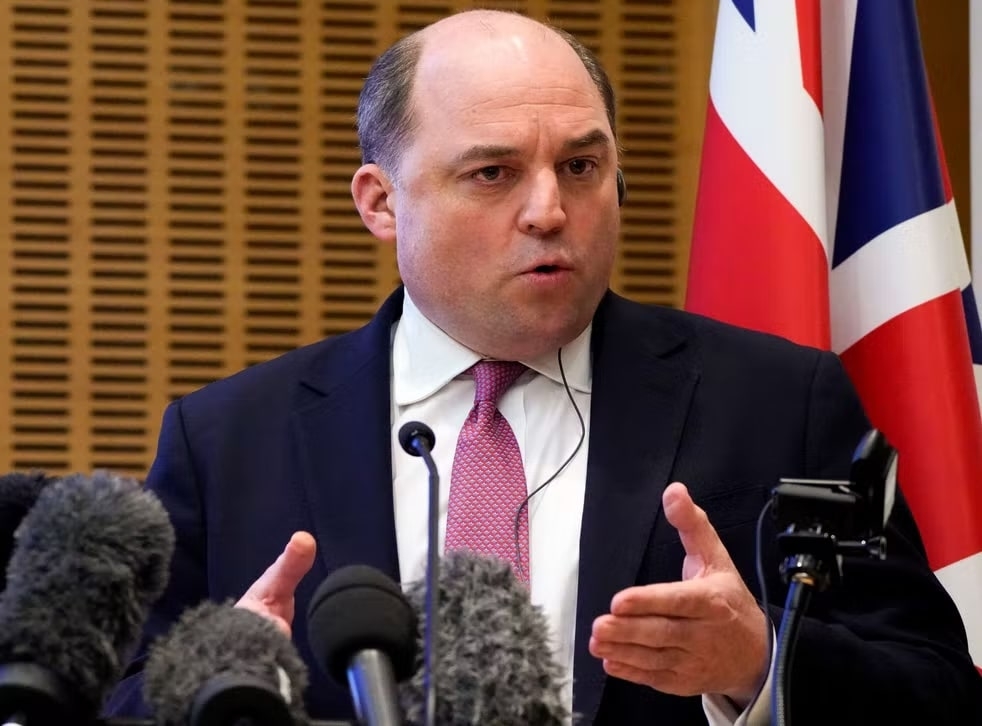 |
| Photo: Getty Images |
Robert Ben Lobban Wallace (born 15 May 1970) is a British politician and former soldier currently serving as Secretary of State for Defence since 24 July 2019 and Member of Parliament (MP) for Wyre and Preston North, formerly Lancaster and Wyre, since 2005.
Before becoming an MP, he was a Conservative list Member of the Scottish Parliament (MSP) for North East Scotland from 1999 to 2003. He stood down in 2003 and moved to Lancashire as he sought selection for a Westminster constituency in England. Following election as an MP and after serving as a backbencher for nearly five years, he was appointed as Parliamentary Private Secretary to the Secretary of State for Justice, Ken Clarke, from 2010 to 2014. Wallace was then made a whip from July 2014 to May 2015. Following the 2015 general election and the formation of the majority Cameron government, he became Parliamentary Under-Secretary of State for the Northern Ireland Office. In 2016, he was appointed Minister of State for Security and Economic Crime by Theresa May, holding the position until she left office in July 2019. A supporter of Boris Johnson, Wallace was promoted to the senior cabinet role of Secretary of State for Defence, after Johnson became Prime Minister.
Before politics, he held the rank of captain in the Scots Guards, a regiment of the British Army.
According to the averages of various bookmakers’ predictions, defense secretary Ben Wallace is tipped as the favorite successor at 3/1. Wallace has experienced a recent surge in popularity thanks to his approach to the Russian war in Ukraine—a poll by right-wing blog Conservative Home found he was the favorite among party grassroots.
A former army captain, Wallace has mostly stayed out of the limelight as a junior minister for former leaders David Cameron and May. While he displayed his loyalty to Johnson by arriving alongside the leader at last month’s no-confidence vote, he has so far kept himself relatively free from scandal.
4. Dominic Raab
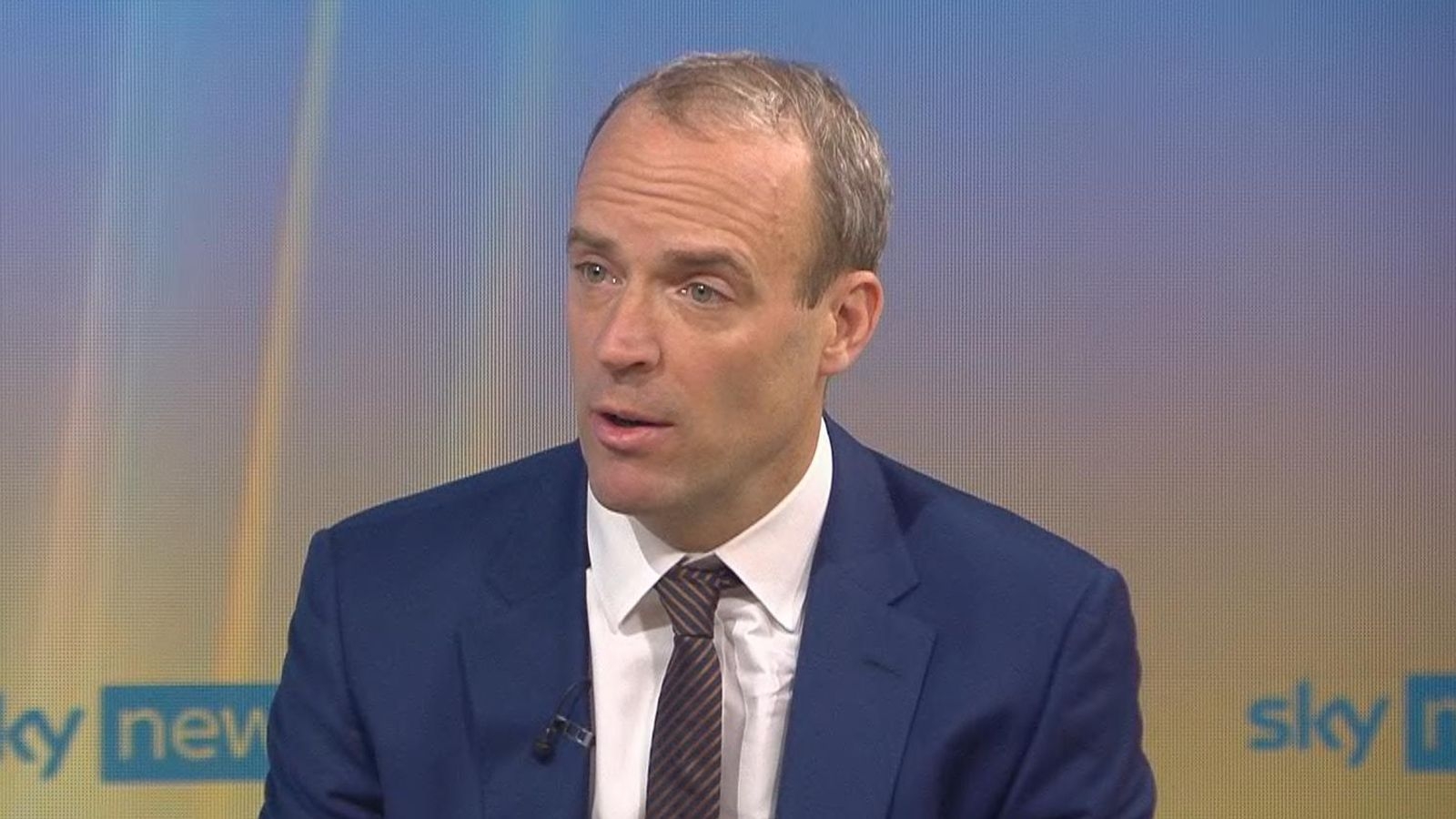 |
| Photo: Sky News |
Dominic Rennie Raab (born 25 February 1974) is a British politician serving as Deputy Prime Minister of the United Kingdom, Secretary of State for Justice and Lord Chancellor since 2021. He has been Member of Parliament (MP) for Esher and Walton since 2010. A member of the Conservative Party, he served as Brexit Secretary in 2018 and First Secretary of State and Foreign Secretary from 2019 to 2021.
Born in Buckinghamshire, Raab attended Dr Challoner's Grammar School. He studied law at Lady Margaret Hall, Oxford, switching to Jesus College, Cambridge for his master's degree. He began his career as a lawyer at Linklaters, before working at the Foreign and Commonwealth Office and as a political aide. He was elected for Esher and Walton at the 2010 general election. He served as Parliamentary Under-Secretary of State for Civil Liberties and Human Rights from 2015 to 2016. Following Theresa May's appointment as Prime Minister, Raab returned to the backbenches, but was appointed to the second May government as Minister of State for Courts and Justice following the 2017 general election. In the 2018 cabinet reshuffle he was moved to the post of Minister of State for Housing and Planning.
In 2018 Raab was promoted to Secretary of State for Exiting the European Union following the resignation of David Davis. However, two weeks later, Raab was deputised by May to negotiate Britain's departure from the European Union, leaving him to oversee domestic preparations instead. Four months later, Raab resigned as Brexit Secretary in opposition to May's draft Brexit withdrawal agreement.
Following May's resignation in 2019, Raab ran to succeed her, but was eliminated in the second ballot of Conservative MPs. Following Boris Johnson's appointment as Prime Minister, Raab was appointed First Secretary of State and Secretary of State for Foreign and Commonwealth Affairs. In 2020, when the Department for International Development was merged with the Foreign and Commonwealth Office, Raab's post was retitled Secretary of State for Foreign, Commonwealth and Development Affairs. In the 2021 cabinet reshuffle he was moved to the posts of Deputy Prime Minister, Secretary of State for Justice and Lord Chancellor.
5. Liz Truss
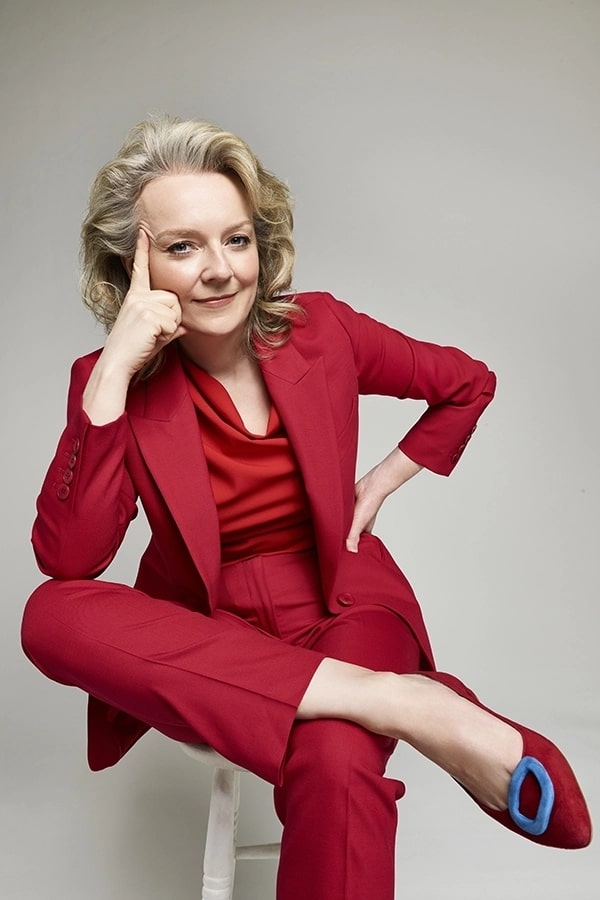 |
| Photo: YOU Magazine |
Mary Elizabeth Truss (born 26 July 1975) is a British politician who has been the Member of Parliament (MP) for South West Norfolk since 2010. She has served as Foreign Secretary since 2021 and Minister for Women and Equalities since 2019. A member of the Conservative Party, she has served in various cabinet positions under Prime Ministers David Cameron, Theresa May, and Boris Johnson.
The foreign secretary, who has made her leadership ambitions known in recent years, could now be in pole position. Liz Truss voted Remain in 2016, but has since become one of the loudest Euroskeptic voices in the government, which many chalk up to her desire for the top job.
She has a formidable and dedicated team around her -- some of whom previously worked in Number 10 -- which has been producing slick videos and photos of her looking thoroughly statesmanlike. She has apparently attempted to channel former Prime Minister Margaret Thatcher, wearing a headscarf while driving a tank, and her role in fronting the response to Russia's invasion of Ukraine has also heightened her public profile.
Truss is popular among Conservative members, who would pick the eventual winner of a contest. But Johnson's downfall could simultaneously tarnish anyone in his cabinet, meaning Conservative voters could turn to a backbencher to take the mantle.
Last month, a source working in the Foreign Office told CNN that Truss had been in "endless meetings with MPs," and that "it's been insinuated that she's seeing what her support base is, should the time come." Truss's office denied that any covert leadership bid was coming.
6. Jeremy Hunt
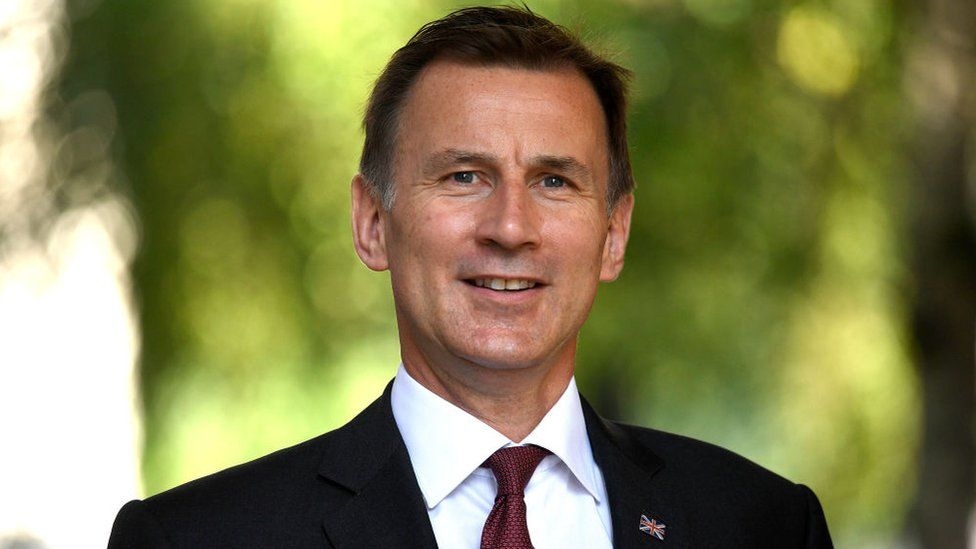 |
| Photo: Getty Images |
Jeremy Richard Streynsham Hunt (born 1 November 1966) is a senior British politician serving as Chair of the Health and Social Care Select Committee since 2020. He previously served in the Cabinet as Secretary of State for Culture, Olympics, Media and Sport from 2010 to 2012, Secretary of State for Health and Social Care from 2012 to 2018, and Secretary of State for Foreign and Commonwealth Affairs from 2018 to 2019. A member of the Conservative Party, he has been Member of Parliament (MP) for South West Surrey since 2005.
The son of a senior officer in the Royal Navy, Hunt was born in Kennington and studied Philosophy, Politics, and Economics at Magdalen College, Oxford, where he was President of the Oxford University Conservative Association. He was first elected to the House of Commons in 2005, and was promoted to the Shadow Cabinet as Shadow Minister for Disabled People and later as Shadow Secretary of State for Culture, Media and Sport. Hunt served in the Coalition Government as Secretary of State for Culture, Olympics, Media and Sport from 2010 to 2012, where he led the drive for local TV, resulting in Ofcom awarding local TV broadcasting licences in respect of several cities and towns. Hunt also oversaw the 2012 London Olympics, which received widespread acclaim.
Hunt served as Secretary of State for Health, later Health and Social Care, from 2012 to 2018. He served under both Cameron and May premierships and became the longest-serving Health Secretary in British political history on 3 June 2018. During his tenure, he oversaw the imposition of a controversial new junior doctors' contract in England after a dispute in which junior doctors undertook multiple strikes; the first such industrial action for 40 years.
Following the resignation of Boris Johnson over the Chequers Agreement, Hunt was appointed Secretary of State for Foreign and Commonwealth Affairs in July 2018. He was a candidate in the 2019 Conservative Party leadership election, finishing second to Johnson. He resigned, effective immediately, following Johnson's election as Prime Minister, and declined an invitation to serve in Johnson's first ministry as Secretary of State for Defence.
7. Nadhim Zahawi
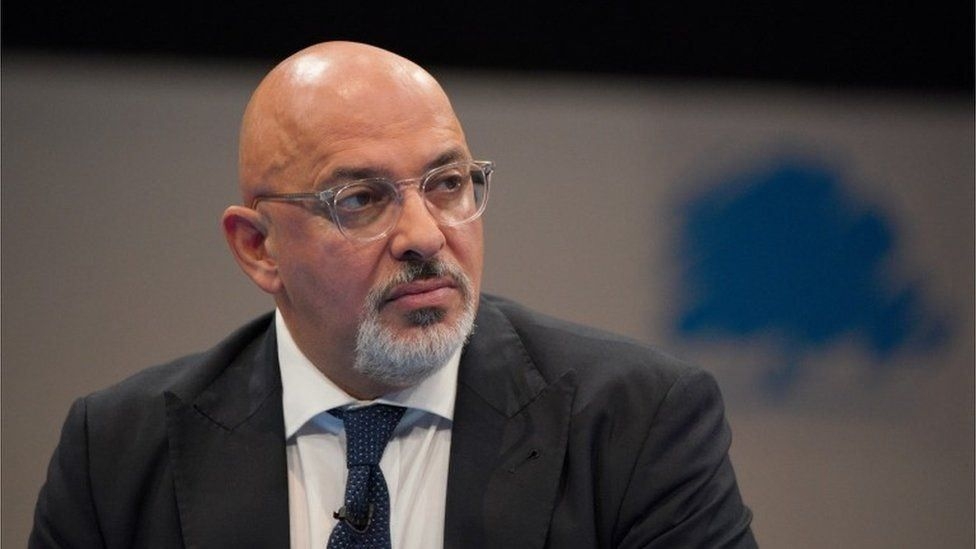 |
| Photo: Getty Images |
Less than two days after he was appointed to chancellor, replacing Sunak, Nadhim Zahawi publicly called on Johnson to resign. "Do the right thing and go now," he said in a statement on Twitter accompanying a letter to the Prime Minister.
Until his promotion, Zahawi, who joined the cabinet less than a year ago, was considered an unlikely choice as the next prime minister. But his rise under Johnson has been rapid, making his mark with early success as vaccines minister amid the coronavirus pandemic and then as education secretary.
Despite voting to leave the European Union in 2016, Zahawi is widely admired among the moderates in the party. Crucially, as one Conservative source put it, "he's not been in government long enough to have any obvious defects and, despite supporting Boris even after the confidence vote, is not too tainted by association."
Zahawi was born in Iraq to Kurdish parents and came to the UK at 9 years old, when his family fled Saddam Hussein's regime. He is believed to be one of the richest politicians in the House of Commons, and helped found the polling company YouGov.
8. Tom Tugendhat
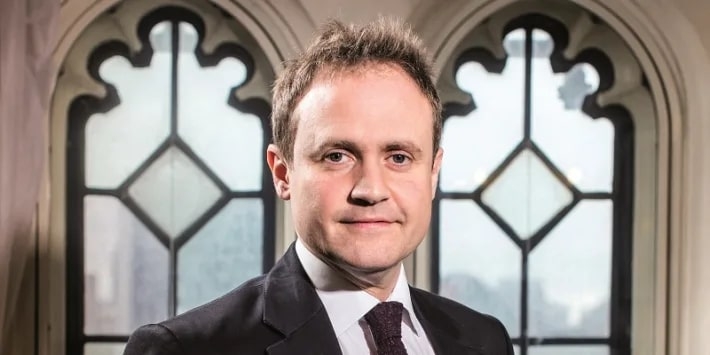 |
| Photo: Getty Images |
A former British military officer who chairs the Foreign Affairs Committee, Tom Tugendhat has been one of Johnson's most robust critics and has called for the Conservative Party to drop its focus on "divisive politics."
Launching his leadership bid on Thursday in The Telegraph newspaper, Tugendhat wrote: "I have served before -- in the military, and now in Parliament. Now I hope to answer the call once again as prime minister. It's time for a clean start. It's time for renewal."
He outlined his vision for tackling the cost of living crisis, reducing taxes and investing in neglected regions of the UK.
Despite not having any cabinet or shadow cabinet experience, Tugendhat has impressed colleagues with his oratory skills and seriousness, most notably when he spoke about the fall of Afghanistan. He entered parliament in 2015 after serving in the Iraq and Afghanistan wars.
Some key centrist Conservatives have already been throwing their support behind the relative wildcard, but some worry that his experience is too focused on foreign affairs.
9. Sajid Javid
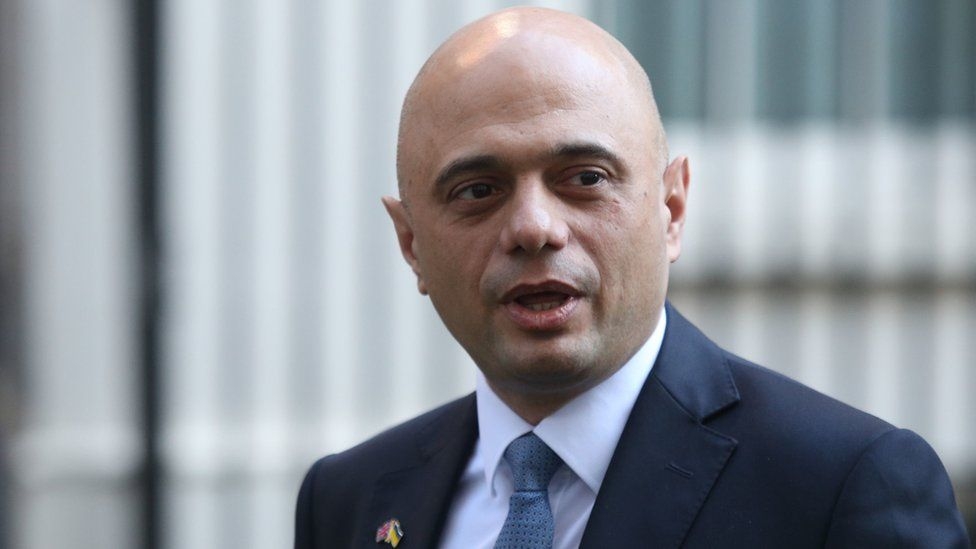 |
| Photo: BBC |
Sajid Javid (born 5 December 1969) is a British politician who served as Secretary of State for Health and Social Care from June 2021 to July 2022, having previously served as Home Secretary from 2018 to 2019 and Chancellor of the Exchequer from 2019 to 2020. A member of the Conservative Party, he has been Member of Parliament for Bromsgrove since 2010.
Born in Rochdale, Lancashire, to a British Pakistani family, Javid was raised largely in Bristol. He studied Economics and Politics at the University of Exeter, where he joined the Conservative Party. Working in banking, he rose to become a Managing Director at Deutsche Bank. He was elected to the House of Commons in May 2010. Under the coalition government of David Cameron he was a Junior Treasury Minister before being promoted to Cameron's Cabinet as Culture Secretary in the 2014 cabinet reshuffle. After the 2015 general election, Cameron promoted Javid to Business Secretary. Javid was a prominent supporter of the unsuccessful Britain Stronger in Europe campaign for the UK to remain in the European Union. Following the 2016 referendum vote to leave the European Union, he went on to serve under Cameron's successor Prime Minister Theresa May, as Communities Secretary from 2016 to 2018. When Amber Rudd resigned as a result of the Windrush scandal in 2018, Javid was appointed as her successor as Home Secretary, becoming the first British Asian to hold one of the great offices of state.
After May's resignation, Javid stood for election as leader of the Conservative Party in the 2019 leadership contest, finishing in fourth place. The successful candidate, Boris Johnson, appointed him Chancellor of the Exchequer in his first Cabinet. Javid resigned as Chancellor during the February 2020 cabinet reshuffle after refusing a demand from Johnson and his chief adviser Dominic Cummings that he dismiss his advisers. In June 2021, following the resignation of Matt Hancock, he was reappointed to Johnson's cabinet as Health Secretary. This made him a prominent figure in the British government response to the COVID-19 pandemic in the United Kingdom. He supported an end to most generalised public health restrictions such as face mask mandates until emergence of the Omicron variant in November 2021, and expanded the vaccination programme. He resigned as Health Secretary on 5 July 2022, almost simultaneously with Rishi Sunak resigning as Chancellor of the Exchequer.
In July 2022, it was announced that Javid was considering running for the leadership of the Conservative Party.
Other possible contenders
1.Michael Gove
The minister in charge of Johnson's flagship "Levelling Up" agenda aimed at transforming the UK's forgotten communities, Michael Gove was sacked from the cabinet after urging Johnson to resign. Gove worked closely with Johnson on the Vote Leave campaign in 2016 before derailing his candidacy by running against him for party leader -- a move that last month he called a "mistake." He has said he would not run again, but if the past is any indication he could change his mind.
2.Steve Baker
The anti-green MP, who runs the European Research Group which is credited for ushering in a hard Brexit, has confirmed he is considering running for prime minister. Steve Baker told the Guardian that if he won, he would dismantle environmental policies and increase the country's use and domestic production of gas.
3.Suella Braverman
The attorney general has signaled her intention to run in a future contest. In an interview with ITV, Suella Braverman called for Johnson to quit and said that she would join a leadership race to replace him, saying "it would be the greatest honor."
Conclusion
Political pressures have finally pushed Boris Johnson to resign. The next PM will have the difficult task of leading the Conservative Party through an internal political crisis that will not be easy to resolve. In addition to this, the country is facing several risks and challenges with which the newcomer will have to face. On the external front the next PM will need to deal with the new Brexit arrangements, the situation in Northern Ireland, a geopolitical crisis with Russia and the impact this could have on energy prices and supply to the UK.
Domestically, it is still uncertain how Johnson’s resignation will affect the Conservative Party across the UK. Recent local elections have confirmed the loss of support in key constituencies. In addition to this, recessionary risks have been rising for the UK economy.
Johnson took over as PM with the goal of delivering Brexit. Unexpectedly he also had to deal with the UK’s response to a global pandemic and the aftermath of a severe economic crisis. During his term, he benefited from having a large majority in Parliament, something both his predecessors did not have, which allowed him to pass all the legislation needed without the need to negotiate. As public support has faded, due to his own wrongdoings, so too has that from his own party.
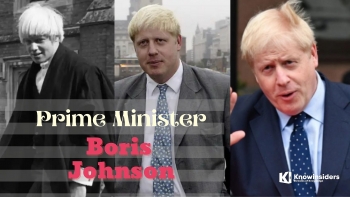 Prime Minister Boris Johnson: Horoscope, Astrological Prediction and Zodiac Sign Personality Prime Minister Boris Johnson: Horoscope, Astrological Prediction and Zodiac Sign Personality Which zodiac sign is Boris Johnson? Find out the Yearly Horoscope, Zodiac Sign Personality, Astrological Prediction for the Prime Minister of the United Kingdom, Boris ... |
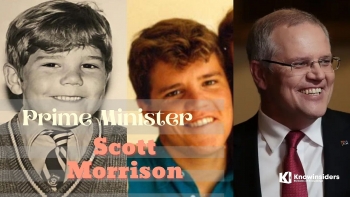 PM Scott Morrison: Horoscope, Astrological Prediction and Zodiac Sign Personality PM Scott Morrison: Horoscope, Astrological Prediction and Zodiac Sign Personality Which zodiac sign is Scott Morrison? Find out the Yearly Horoscope, Zodiac Sign Personality, Astrological Prediction for the Prime Minister of Australia, Scott Morrison, in ... |
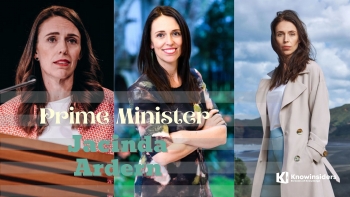 PM Jacinda Ardern: Horoscope, Astrological Prediction and Zodiac Sign Personality PM Jacinda Ardern: Horoscope, Astrological Prediction and Zodiac Sign Personality Which zodiac sign is Jacinda Ardern? Find out the Yearly Horoscope, Zodiac Sign Personality, Astrological Prediction for the Prime Minister of New Zealand, Jacinda Ardern, ... |
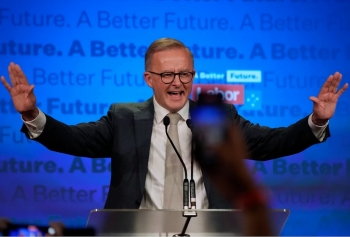 Who is Anthony Albanese - Australia's Prime Minister: Biography, Early Life, Family, Education and Career Who is Anthony Albanese - Australia's Prime Minister: Biography, Early Life, Family, Education and Career Anthony Albanese, Australia's New Prime Minister: Check out His Biography, Early Life, Family, Education and Political Career. |


























